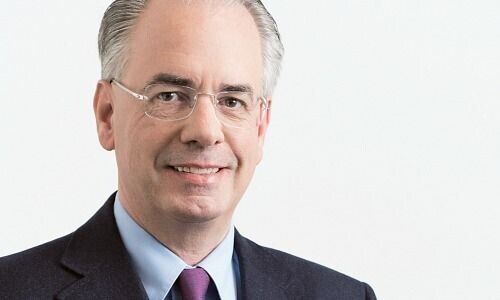The Swiss bank's retrieval of Ulrich Koerner out of retirement feels like an act of desperation as it deals with a $10.1 billion fund debacle.
It's only March, but the appointment is certain to be one of the bigger surprises in Swiss finance this year: 58-year-old Ulrich Koerner is returning to Credit Suisse, where he worked including in top management until 2008. The German-Swiss banker's third act is crisis-managing the Swiss bank's asset management arm following an organizational carve-out.
The move reveals how hard-pressed Credit Suisse is: Koerner had vanished into obscurity after leaving UBS last year, but not for want of trying. Behind the scenes, he threw his hat into the ring to succeed Credit Suisse Chairman Urs Rohner this year (unsuccessfully). Now, he has Lex Greensill to thank for his return to finance.
Mixed Record At UBS
Koerner is tasked with salvaging what Credit Suisse can from a $10.1 billion supply chain fund line following Greensill Capital's insolvency, following the removal of veteran Eric Varvel. Besides picking through the «material» financial wreckage, Credit Suisse has a severely dented reputation to patch up; governance, risk management, and organizational questions to answer; and regulatory and legal issues to address.
Koerner's record can best be described as mixed: to his credit, he has years of solid banking and restructuring experience and advised financial service firms at McKinsey, after earning a Ph.D. at St. Gallen's prestigious business university. He has Oswald Gruebel, the ex-CEO of both Credit Suisse and later UBS, to thank for fostering large parts of his career.
Option Of Unit Disposal
Stiff and cerebral, Koerner followed Gruebel to UBS in 2009 and made a name for himself as a turnaround specialist and operating chief, before in 2014 moving to the asset management unit. He had less luck in his five years there: the unit missed a big profit target.
He has his work cut out for him: responsibility for asset management has bounced from investment banking (2004) into wealth management (2012), underscoring Credit Suisse's inability to cope with it.
Gottstein made clear this week that the Swiss bank will stick with it, despite Greensill and other troubles. However, carving it out leaves Credit Suisse with the option of selling or pairing it up should the opportunity arise.
Comfortable As Lighting Rod
With more management changes likely to come, his job is to be the lightning rod for Credit Suisse – a role Koerner, who can be abrupt and cold with subordinates whom he deems to be of inferior intelligence – is accustomed to. It's not an orderly succession that CEO Thomas Gottstein had hoped for at the asset management unit, but Credit Suisse had few other choices.
That means that Koerner, who is a bare-knuckles negotiator, was able to make his demands in terms of money but also in rank: he'll join Credit Suisse's top management (again) and report directly to Gottstein. The money management arm gets its own unit for the first time since 2011, and private bank boss Philipp Wehle has one massive worry less.
Future Board Seat?
Koerner's ambition is legendary: when asked to stand in as CEO when Gruebel left suddenly in 2011 following a $2 billion rogue trading scandal, Koerner made a counteroffer. Give me the job permanently, he told the board at the time, or not at all, finews.com reported in 2019. The board demurred. Sergio Ermotti agreed to stand in instead and, two months later, clinched the job permanently.
He probably still wants a big board job, but this hinges on António Horta-Osório, who succeeds Rohner as chairman of Credit Suisse next month. The Portuguese banker is likely to order an extensive review not just of asset management but of the wider bank to better understand how so much of Credit Suisse became ensnared with Greensill.
Altogether possible that Koerner's tenure in asset management culminates in a board seat further down the road.




































